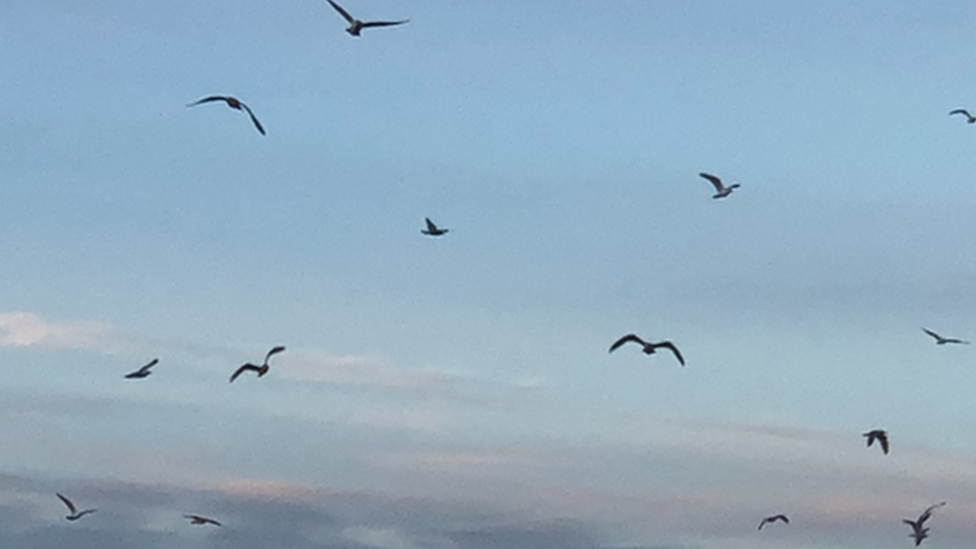Dozens of swans die in Stratford-upon-Avon bird flu outbreak
- Published
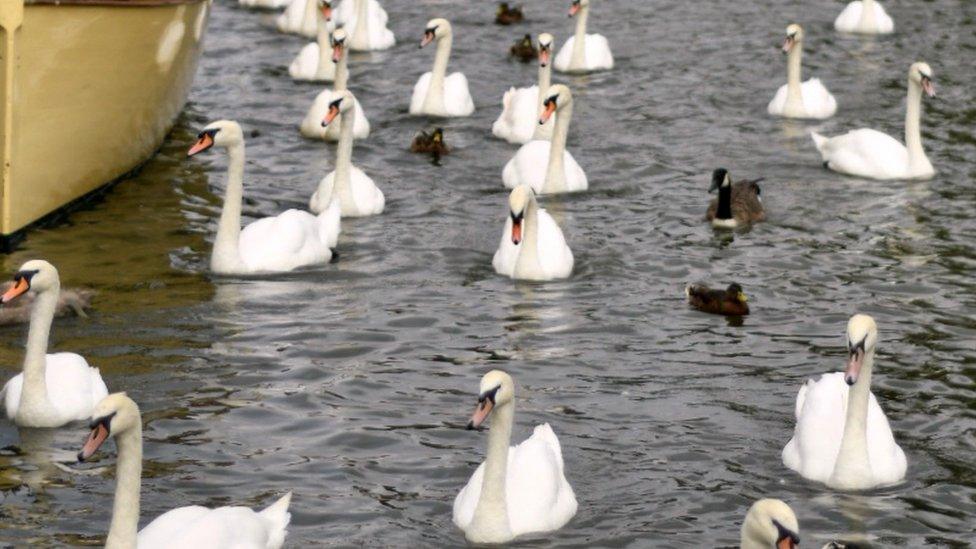
Stratford-upon-Avon is thought to be home to about 80 swans
Half of all swans living in Stratford-upon-Avon are thought to have died in a bird flu outbreak, a rescue centre estimates.
The Warwickshire town had an estimated 80 swans living on the River Avon.
But Cyril Bennis, from Stratford Swan Rescue, said half the flock had died over an "unbelievable last two weeks".
Stratford-upon-Avon District Council said tests had confirmed a strain of avian flu in dead birds collected from the town.
Mr Bennis, the former mayor of Stratford-upon-Avon, said: "It is absolutely brutal.
"Healthy, perfectly good condition swans, perfectly good, healthy, young cygnets have picked up this virus."
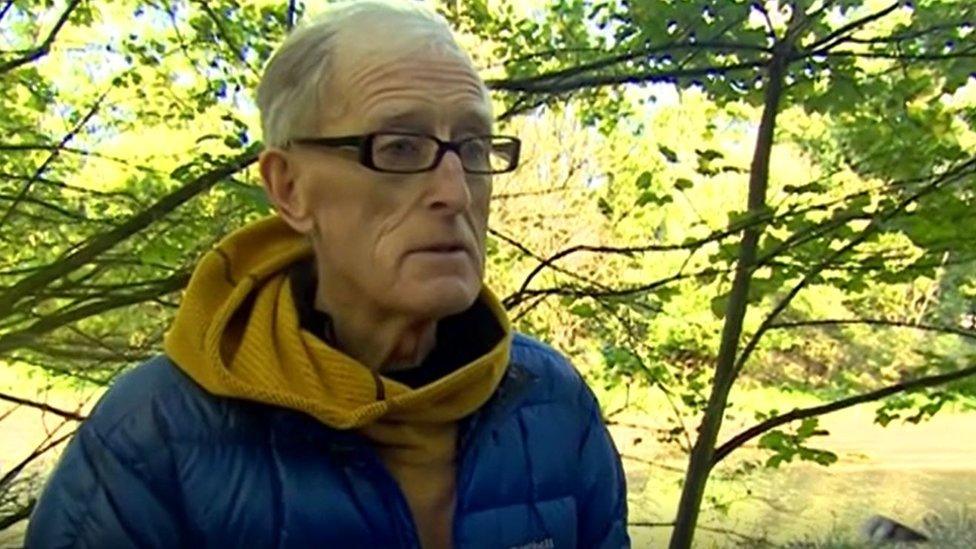
Cyril Bennis estimates half of Stratford-upon-Avon's flock of swans have died
It comes after a case of the disease discovered on Sunday led to a cull of all turkeys and chickens at a poultry unit near Alcester, Warwickshire.
A UK-wide bird flu prevention zone has also come into force, meaning bird keepers need to follow strict biosecurity measures to help protect their flocks.
Bird flu has also been confirmed at a wild bird rescue centre in Worcestershire, at an animal sanctuary near Frinton-on-Sea in Essex and in Chirk, near Wrexham.
The Department for Environment, Food and Rural Affairs (Defra) said high pathogenicity avian influenza (H5N1) had been confirmed in a small number of swans and one Canada goose near Stratford-Upon-Avon.
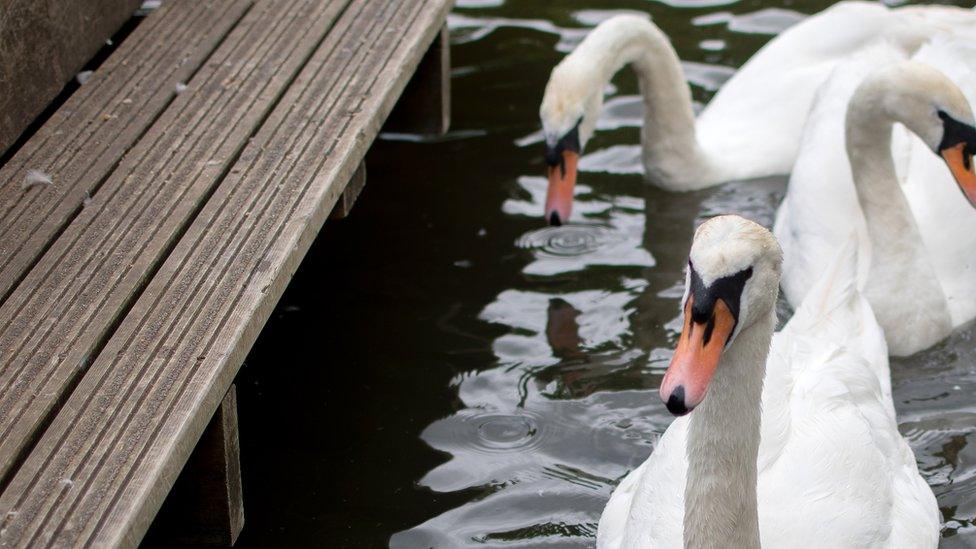
Tests on dead swans taken from the area have identified a strain of avian flu
Stratford-upon-Avon District Council said it was working with agencies to manage the situation and protect public health and the risk to other birds.
Councillor Christopher Kettle said the outbreak was "obviously of concern to residents" and while the UK Health Security Agency had made it clear the risk of transfer to humans was low, members of the public should not touch nor go near sick or dying birds, and should report dead birds to the local authority.

Follow BBC West Midlands on Facebook, external, Twitter, external and Instagram, external. Send your story ideas to: newsonline.westmidlands@bbc.co.uk
Related topics
- Published11 November 2021
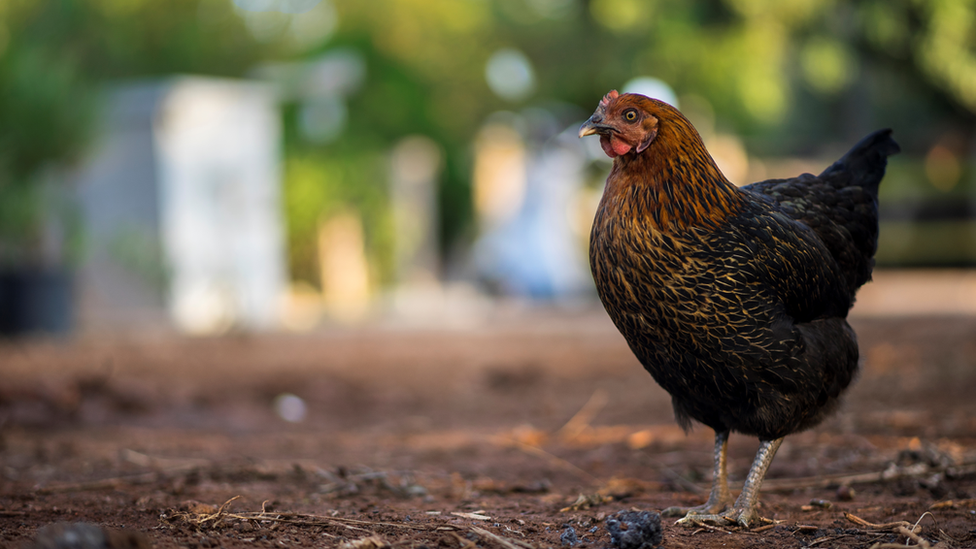
- Published2 November 2021
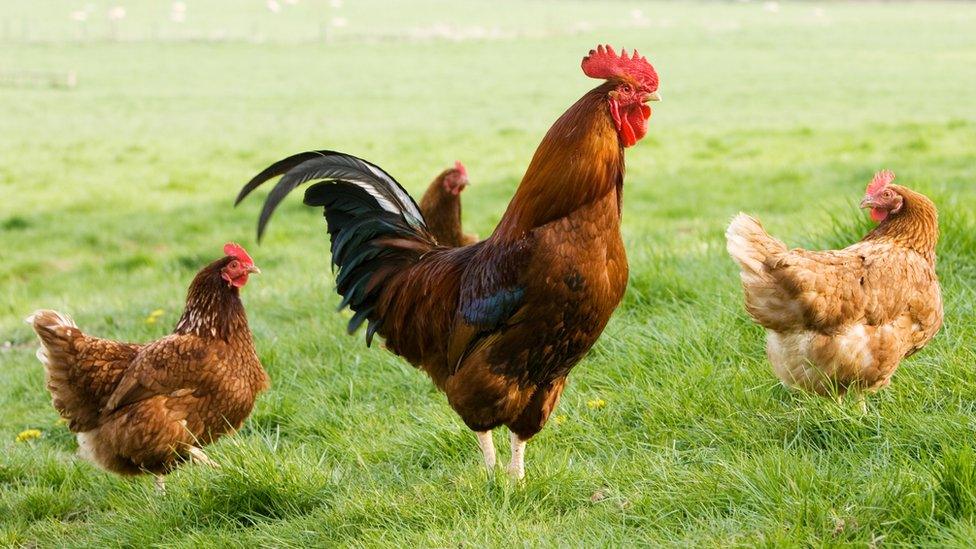
- Published2 November 2021
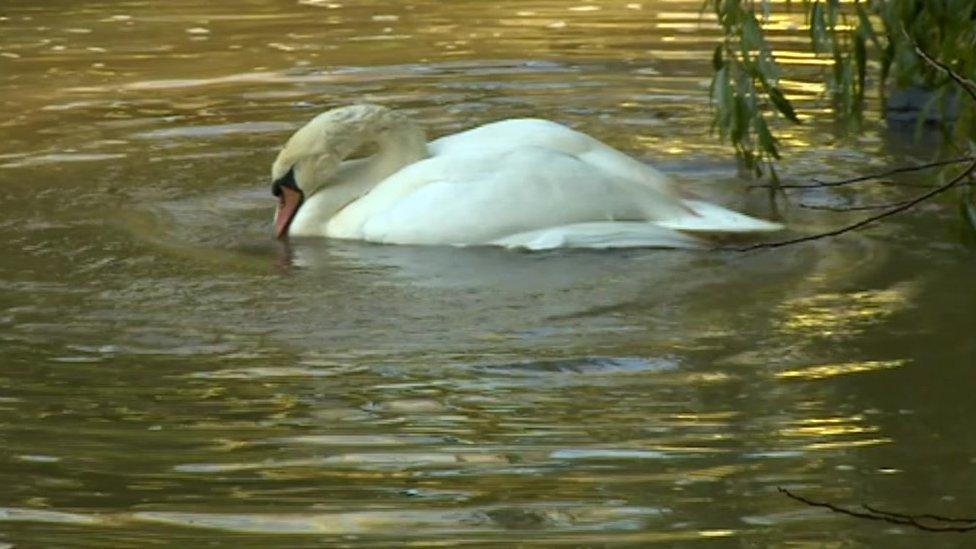
- Published26 October 2021
